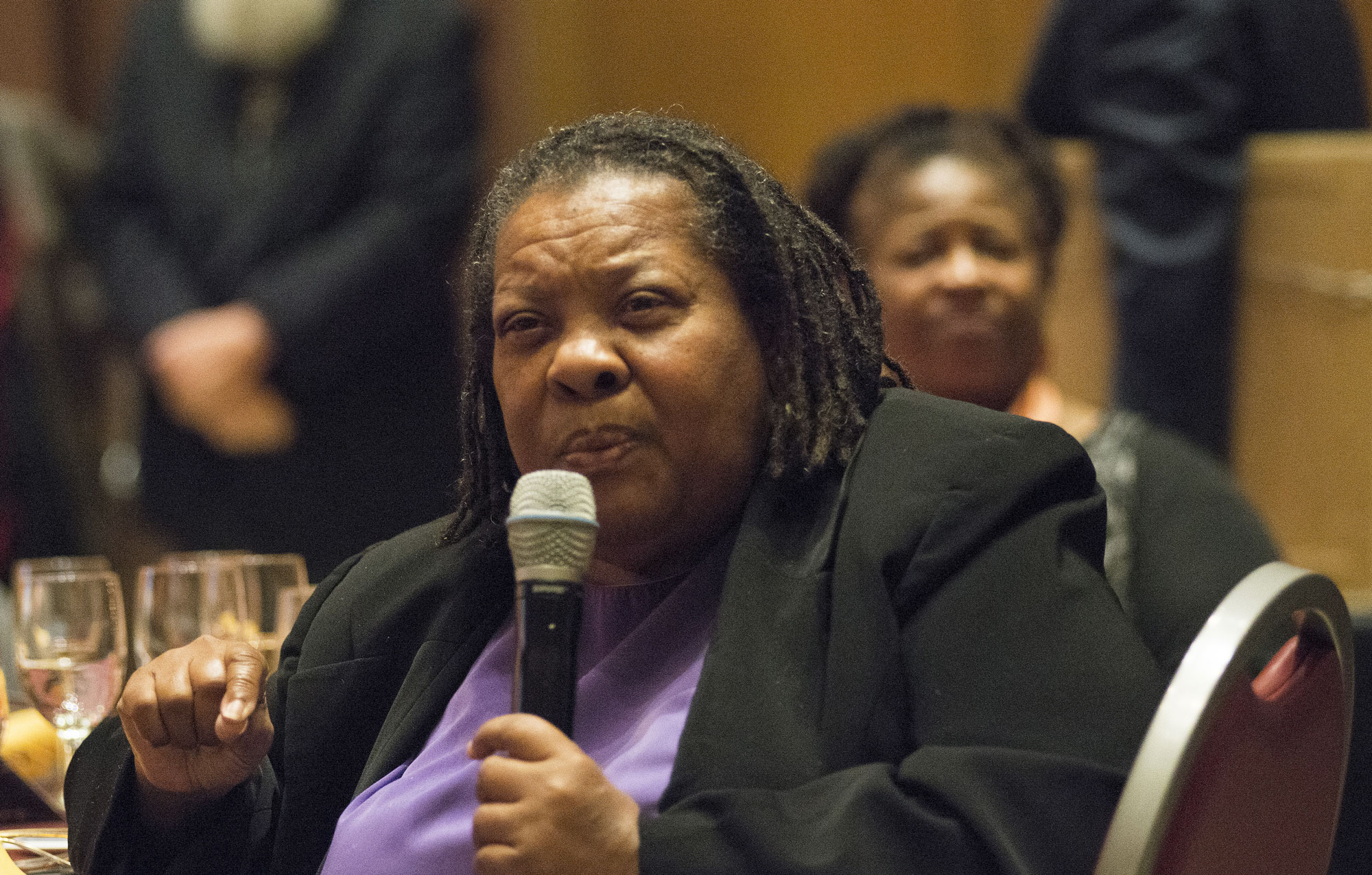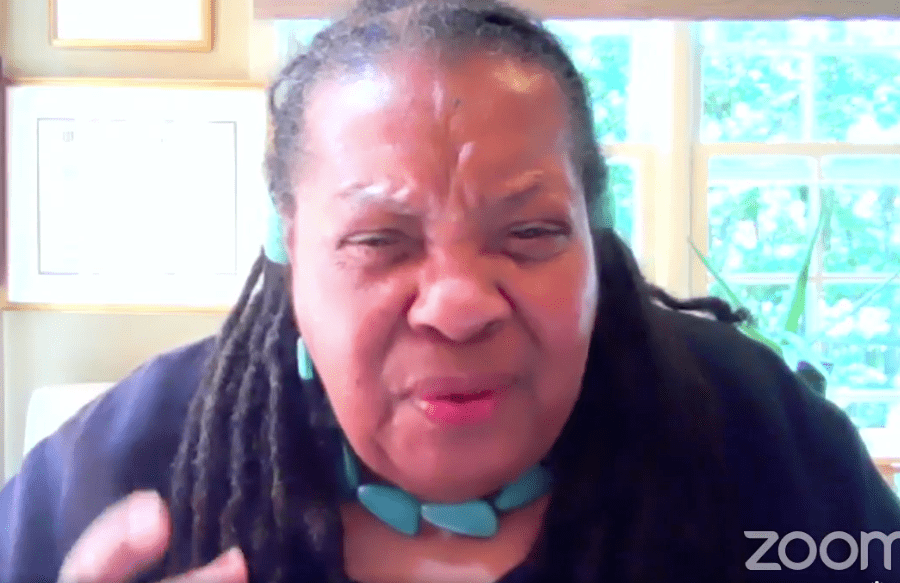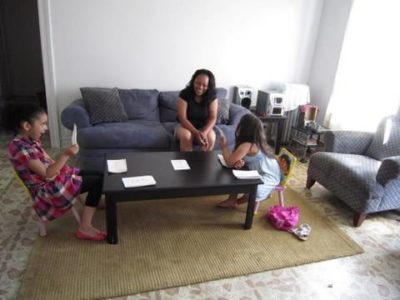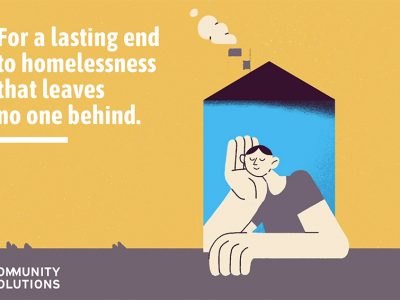- 80+ communities gathered at Built for Zero’s virtual October Learning Sessions to center racial equity in the movement to end homelessness.
- Built for Zero introduced a framework to help communities measure and design a racially equitable homeless response system.
In September 2016, communities in Built for Zero gathered in Tulsa for its first conference as a movement.
The meeting happened in a community where Terence Crutcher, a 40-year-old Black man, had been shot and killed by police just two weeks earlier. It happened in a place where, 99 years earlier, mobs of white people burned down Black Wall Street and killed 36 Americans.
“We need to interrogate every aspect of our system, and we need to put a vision of equity out in the world so we know where we are heading.”
Regina Cannon
At that conference, keynote speaker Melissa Harris-Perry challenged Built for Zero to not be bystanders in the fight for racial justice.
This Learning Session, more than 80 communities in Built for Zero convened virtually to center racial equity in the movement to end homelessness.
“We need to interrogate every aspect of our system, and we need to put a vision of equity out in the world so we know where we are heading,” said Regina Cannon, Chief Equity and Impact Officer at C4 Innovations. “We must go to the systemic racism embedded in our homeless response system.”
Introducing indicators for a racially equitable homeless response system
The movement to end homelessness cannot be decoupled from the racism that pervades our nation’s history and systems.
“When you talk about homelessness, it is not about individual behavior,” said Ruby Nell Sales, an activist, scholar and theologian who delivered the keynote. “It’s about systemic violence against a person’s human dignity.”
We know that systems that are not explicitly designed to identify and respond to racial inequity will potentially sustain and even deepen it. The homeless response system is not immune to this reality.
With input from our external partners, community leaders, and people with lived experience of homelessness, Built for Zero has developed a framework to help communities measure and design a racially equitable homeless response system. The framework seeks to equip communities with indicators, and accompanying measures, to signal progress toward four critical areas of a racially equitable homeless response system: 1) system decision-making power 2) lived experience 3) quality data and 4) systems outcomes.
Moving forward, Built for Zero communities will be integrating this framework into their journey to reach functional zero.
“It’s about acknowledging that our system does not serve everyone equally,” said Garen Nigon, Built for Zero Strategy Lead. “In order to solve the problem, we have to know what people served are experiencing.”
Over the course of the learning session, speakers reminded communities that racial equity is not just an outcome, but a process. Communities joined with Dr. Bernice Rumala of the People with Lived Experience Institute to learn about co-designing programs with people with lived experience.
“We cannot focus on outcomes when the processes are inequitable,” she said.

“When you talk about homelessness, it is not about individual behavior. It’s about systemic violence against a person’s human dignity.”
RUBY NELL SALES
Forward, together
Jessica Venegas, Principal for Community Solutions, recalled that conference from 2016. She noted that the organization has been on its own journey toward meaningfully centering racial equity in its support of Built for Zero communities.
“As an organization our racial equity work is not new and it’s not finished,” she said. “And we are not doing alone.”
“This isn’t work that you have to do alone…You have the Built for Zero team who will hold ourselves accountable to making sure you have what you need.”
Leslie Wise
This has been — and continues to be — a transformational process, not a transactional one.
We recognize that this transformation must happen individually, organizationally, in local systems, and at state and national levels. And that this transformation can happen together.
“This isn’t work that you have to do alone,” said Leslie Wise, Portfolio Lead of Built for Zero. “You are part of a movement made up of hundreds of leaders working toward ending homelessness. You have the Built for Zero team who will hold ourselves accountable to making sure you have what you need.”
Brenda O’Connell, a community leader from Lake County, Illinois, asked Ruby Nell Sales what gives her hope in our ability to build a democratized, equitable future.
“There is hope in history,” Sales said. “There were great empires that are pale images of themselves today. But the power of people still exists. It is in the lives of ordinary people — and it is their unbroken impulse for freedom and human dignity that gives me hope.”
We are immensely thankful to our partners who served as session speakers and facilitators. They included scholar and theologian Ruby Nell Sales; Regina Cannon, Chief Equity and Impact Officer of C4 Innovations; Donald Whitehead, President of the Board of Directors of National Coalition for the Homeless and Co-Founder of Racial Equity Partners; Kavita Singh Gilchrist, Co-Founder of Racial Equity Partners; and Co-Directors and Founders of the Persons with Lived Experience Institute, Dr. Bernice Rumala and Yolanda Roary, MA.




